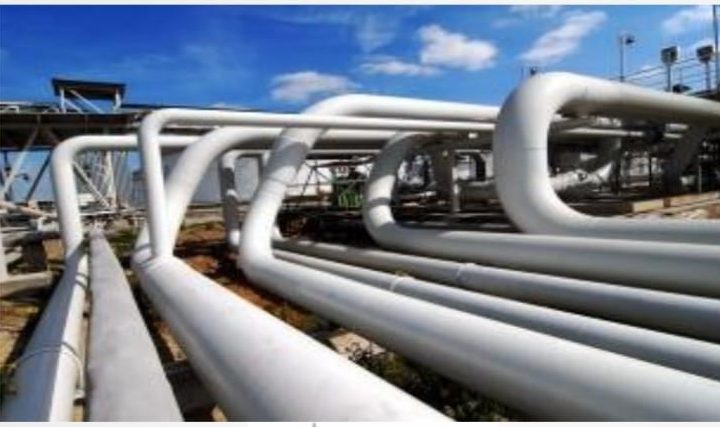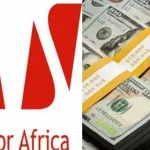The persisting foreign exchange crisis in Nigeria which has seen the naira fall to a record low, especially in recent time, will continue unless the country comes up with an effective strategy to boost production and increase exports, says Pat Utomi, a Professor of Political Economy.
The recent Foreign Exchange (FX) reforms involved the unification of the exchange windows and floating of the naira. The naira float in the FX market which devalued the currency leading to what some economic analysts described as a “free fall”, has raised serious concern from policymakers, monetary authorities, the organised private sector, foreign investors, and the general Nigerian public.
Join our WhatsApp ChannelAs of Wednesday, 23 August one United States Dollar was sold at an average cost of N901 in the parallel market (black market), while the rate of exchange in the official window (Importer and Exporter window) was N773.42/$1.
READ ALSO: Black Market, Official Window Dollar Rates’ Gap Widens To N127 After BDCs Hike USD Price
In an interview with Prime Business Africa, Professor Utomi said the naira would continue to get weaker because Nigeria is not producing anything and depends heavily on importation for the consumption needs of the citizens.
He said that because the country solely depends on crude oil exports, it suffers a deficit supply of FX leading to a crisis.
He noted that the current FX crisis in the country is similar to what happened in 1982 when all kinds of things were being imported with no commensurate export and at some point due to OPEC crisis, the country couldn’t sell even a single barrel of crude oil for more than two weeks.
According to data released by the Nigerian Upstream Petroleum Regulatory Commission (NUPRC) recently, the country’s oil production in the first five months of 2023 continued to fall below the 1.74 million barrels per day (bpd) quota given by the Organisation of Petroleum Exporting Countries (OPEC), leading to a production of just 56 per cent of total expected output during the period. Nigeria was expected to produce an estimated 261.3 million barrels during the period, given a 1.742 million daily production quota and about 52.26 million barrels every month, but its total volume between January and May 2023, was 181.5 million barrels. This has a significant impact on government revenue as the country loses billions of dollars due to underproduction of its crude oil quota. The underproduction is reportedly caused by oil theft in oil-producing communities, especially in the Niger Delta.
Speaking on the need to diversify the economy, Utomi said the Nigerian authorities need to do a holistic review of what should be the country’s factor endowments and begin to stimulate production activities around them to have more products they can compete with in the international market, rather than relying solely on oil for foreign exchange earnings.
“We have a supply side, that’s not enough. How do we solve the problem? You just have to stop talking about going from consumption to production and actually produce.”
Continuing, he said: “We have not done enough to seriously organize things we’re producing. We need a strategy for everything, and the strategy that I personally would pursue is generally referred to these days in Structural Economics, as latent comparative advantage. So how do we look at our factor endowments?”
He gave an example of Sesame seeds which Nigeria is one of the major producers in the world, with an annual production of over 500,000 tons, adding that there is a need for organised production of the things the country is naturally endowed with and boost export for foreign exchange.
He said these things can be done within a short time with honest commitment to it but what happens is more of political rhetoric while no concrete action is taken in that direction.
“So, the foreign exchange crisis will continue until we begin to actually produce for export to earn foreign exchange. What we are depending on is the grace of God and oil price,” Utomi stated.
Apart from supply-side challenges as a result of low exports, he also pointed out that there is a problem with institutional arrangements around the foreign exchange system, noting that “Foreign exchange markets are influenced by the perception of availability.
“Once you begin to have current account deficits, people can speculate on your currency. But how market savvy you are can help manage that speculation. What exactly is the central bank doing in that regard? You declare the free market is free, but free markets are modulated by assumptions. So, what are the things we are doing that are creating new perceptions that would give confidence that things are about to change. I’m not so sure that I am seeing those things signaling appropriately.”
READ ALSO: Fuel Subsidy Removal: Allow Private Investors To Set Up Modular Refineries – Utomi Urges FG
He warned that if effective measures are not put in place, the country might encounter the Zimbabwe type of free fall in its currency value.
Recently, a Chief Economist at SPM Professionals, Mr Paul Alaje, made a doom prediction that the naira may go as low as exchanging for N1,500 per dollar. The economic expert stated this while commenting on the recent report released by the Central Bank of Nigeria (CBN), which is the first in the last seven years. Part of the report indicated that CBN owes JP Morgan, and Goldman Sachs $15 billion in cash receipts.
Reacting to this, Alaje, who appeared on Channels Television Politics Today programme recently said if the creditors decide to get their money back when the borrowing terms elapse, the naira would be devalued more. “Today, if those banks’ terms of borrowing elapse, I mean, when they say they need their money back, the naira will get devalued because we don’t have anything to defend. Naira under this current regime may go as poor as N1,500 to a dollar. Already, we are battling between N920 to N1,000,” Alaje said.
As part of measures to tackle the foreign exchange crisis, Alaje also advised the Federal Government to take adequate measures to curb theft and boost crude oil production and also properly manage the extraction and shipment of solid minerals found across the country.
Victor Ezeja is a passionate journalist with seven years of experience writing on economy, politics and energy. He holds a Master's degree in Mass Communication.

















Follow Us